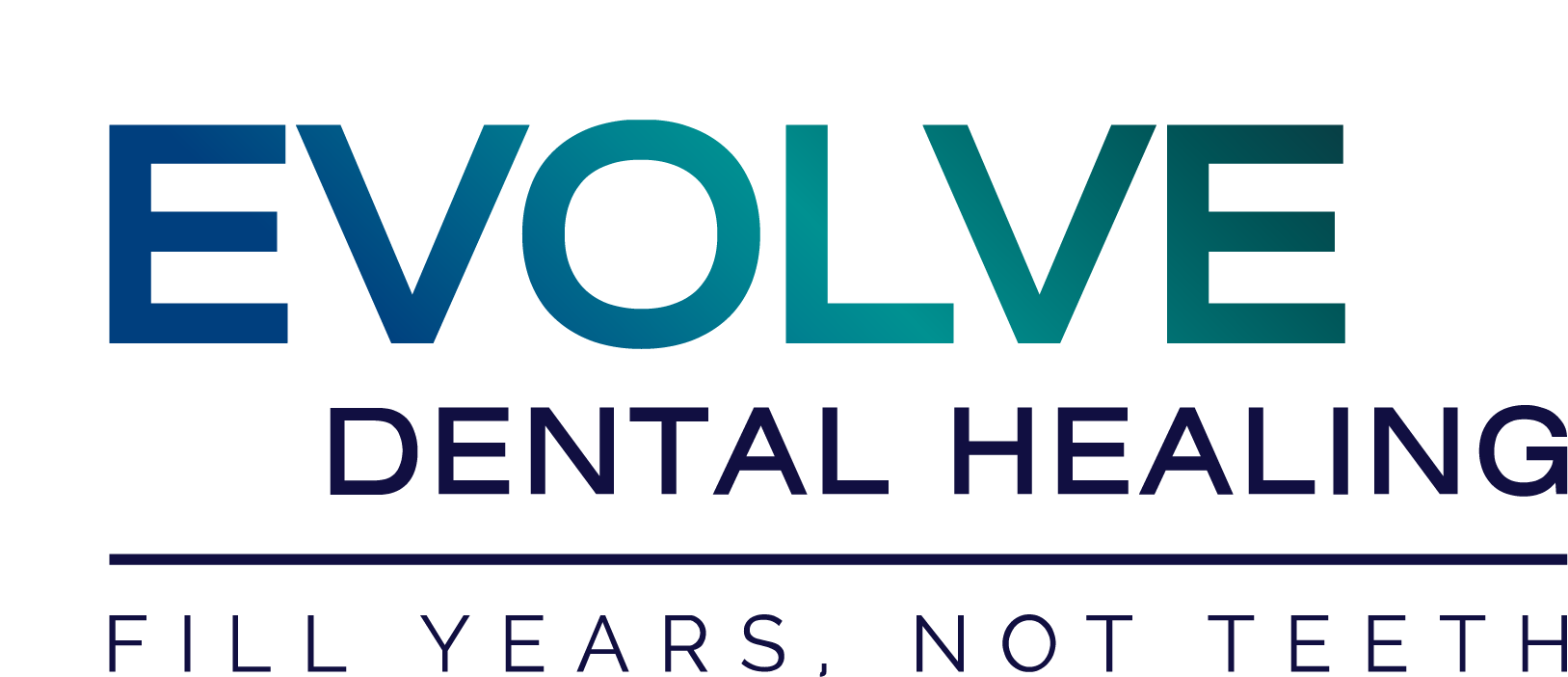Vitamin C

Vitamin C and Your Dental Health
Vitamin C deficiency causes scurvy but it was not until the 16th century that people realised that certain fruits and vegetables could prevent or cure the disease. In 1928 vitamin C was isolated and shown to be the substance necessary to prevent and cure scurvy. In its pure form, vitamin C, which is also known as ascorbic acid, is a water-soluble white powder. Humans are among the few species that cannot manufacture vitamin C and must obtain it from food.
What Does Vitamin C Do?
Vitamin C is involved in hundreds of vital biological processes in the body.
The main role of vitamin C is in the manufacture of collagen. This protein forms the basis of connective tissue, the most abundant tissue in the body, and acts as a cementing substance between cells. It helps support and protect blood vessels, bones, joints, organs and muscles, and forms a sizable proportion of skin, tendons, the cornea of the eye, ligaments, cartilage, teeth and bone. Collagen forms a protective barrier against infection and disease and promotes healing of wounds, fractures and bruises.
Vitamin C is critical to immune function as it is involved in antibody production and white blood cell function and activity. Other functions include the production of interferon, an antiviral and anticancer substance. Vitamin C requirements are raised when the immune system is under stress.
Vitamin C is a powerful water-soluble antioxidant and plays a vital role in protecting against oxidative damage caused by free radicals. It neutralizes potentially harmful reactions in the blood and the fluid inside and surrounding cells. It also helps protect LDL cholesterol against free radical damage. The antioxidant action helps to protect against cancer, the effects of aging, heart disease and an array of health problems.
Vitamin C is important in the synthesis of adrenal hormones and is depleted from the adrenal glands in times of stress.
Vitamin C plays a role in the manufacture of neurotransmitters necessary for the proper functioning of the nervous system. It is necessary for the conversion of tryptophan to serotonin, and of tyrosine to dopamine and adrenaline.
Vitamin C is involved in the manufacture of carnitine, a substance necessary for the production of energy from fatty acids in cells, especially cardiac and skeletal muscle cells. Vitamin C is necessary for the activity of the enzyme system which metabolises drugs in the body. It is also necessary for iron absorption and plays a role in the conversion of cholesterol to bile acids for excretion.
Vitamin C Deficiency
A lack of vitamin C leads eventually to scurvy. The symptoms are mainly due to poorly formed collagen and include the breaking open of small blood vessels, the reddening and bleeding of gums, loose teeth, joint pains, dry scaly skin and blood vessel damage. Other symptoms include general weakness, fluid retention, depression and anaemia.
Vitamin C deficiency can also cause slower wound-healing, increased susceptibility to infections, male infertility and increased genetic damage to sperm cells, which may lead to birth defects.
Scurvy and severe vitamin C deficiency are rare in developing countries but marginal deficiencies may be relatively common and may play a role in the development of diseases such as cancer and heart disease.
Men, the elderly, smokers, diabetics, those with high blood pressure and those taking oral oestrogen-containing contraceptive users have lower plasma vitamin C levels and are at greatest risk of deficiency-related disease.
Vitamin C deficiency has been linked to cardiovascular disease, high blood pressure, cancer, cataracts, the increased effects of diabetes, asthma and poor lung function and reduced immunity.
Vitamin C deficiency may also play a role in macular degeneration of the eye, arthritis, Parkinson’s disease, pre-eclampsia of pregnancy, the common cold, gum disease, low sperm counts and skin ulcers.
Sources of Vitamin C
Good sources of vitamin C include citrus fruits such as oranges and grapefruits. Other sources include strawberries, kiwifruit, blackcurrants, papaya and vegetables such as red peppers, broccoli and brussels sprouts. Vitamin C from natural sources such as these is associated with bioflavonoids which enhance the beneficial effects of vitamin C. Vitamin C is easily lost during storage and cooking. Ageing, bruising, overcooking and re-heating all destroy vitamin C. Slicing vegetables exposes a higher surface area to heat and light, leading to loss of vitamin C.
Recommended dietary allowances (RDA)
| Men | Women | Pregnancy | Lactation | |
| USA | 60 mg | 60 mg | 70 mg | 95 mg |
| UK | 40 mg | 40 mg | 50 mg | 70 mg |
| Australia | 40 mg | 30 mg | 60 mg | 75 mg |
In a paper published in 1996, researchers at the National Institutes of Health recommended that the RDA for vitamin C be raised to 200 mg per day.
Supplements
Vitamin C is the most widely taken supplement in developing countries. It is available in pills, powders, effervescent tablets, syrups and pastilles. Ascorbic acid is the most widely used and least expensive form, but it causes stomach upsets in some people and can damage tooth enamel. Calcium ascorbate and sodium ascorbate are also readily available and are less likely to have these effects. Some supplements provide vitamin C in the form of the C complex which contains bioflavonoids. These compounds occur naturally with vitamin C and, in high enough doses, increase its activity.
Supplements are particularly beneficial for anyone who smokes, eats an unhealthy diet, is under physical or emotional stress, drinks alcohol, lives in a polluted environment, is exposed to toxic chemicals, suffers from recurrent infections or have an increased risk of cancer. Women who take the contraceptive pill, elderly people, pregnant women and those with absorption difficulties are also likely to benefit.
Dosage
Opinions vary widely as to the optimal dose of vitamin C. Linus Pauling, the Nobel Prize winner who studied the effects of large doses of vitamin C on the common cold, flu and cancer, recommended an optimum intake of between 2 g and 9 g per day. Many experts believe that 500 mg is ideal to meet body needs while others feel that 200 mg is adequate. Vitamin C needs vary with age, weight, activity, energy levels, general metabolism and state of health.
In order to maintain blood levels of vitamin C, it is best to take it in divided doses throughout the day. Taking vitamin C with food minimizes adverse effects on the digestive system.
Toxic effects of excess intake
Vitamin C is safe in relatively large doses but excessive intakes may cause diarrhea, nausea, stomach cramping, excess urination and skin rashes. There is the possibility of kidney stones in those with kidney disease. These effects may occur when doses above 1 g are taken regularly. Chewable vitamin C may lead to tooth decay.
Large doses of vitamin C taken by pregnant women have caused ‘rebound scurvy’ in newborn babies whose intake returns to normal. It is advisable to reduce vitamin C intake slowly after taking large amounts to reduce the risk of rebound scurvy.
Vitamin C supplements are used to treat and prevent many diseases and conditions. For some of these, there is research evidence while for others the evidence is mainly anecdotal. Vitamin C supplement use appears to be associated with a lower risk of death in elderly people and vitamin C seems to enhance the beneficial effects of vitamin E.
Heart Disease
Vitamin C may exert its protective effects by lowering total blood cholesterol and harmful LDL cholesterol and raising beneficial HDL. Vitamin C also increases the production of prostacyclin, a prostaglandin which decreases the clumping of blood platelets and dilates blood vessels, therefore reducing the risk of heart disease, atherosclerosis and stroke.
Smoking
Vitamin C needs are higher in smokers and several studies suggest that vitamin C may protect against smoking-related damage. It may help to decrease the smoking-related build-up of atherosclerotic plaque by limiting the number of white blood cells that stick to artery walls. Vitamin C supplements may be helpful in restoring reduced plasma vitamin C concentrations in smokers. Like those with high cholesterol levels and coronary heart disease, the arteries of smokers have a reduced ability to dilate. Vitamin C supplements may counteract this impairment.
High blood pressure
Vitamin C may also be of benefit in the treatment of mild high blood pressure, another risk factor for heart disease and stroke. Some research suggests that vitamin C may have beneficial effects in lowering high blood pressure. Vitamin C supplements improve abnormal artery lining function in hypertensive people.
Cancer prevention.
Vitamin C supplements may have a part to play in cancer prevention. Some research suggests that the risk of cancer is lower in those taking supplements. Vitamin C may exert its anticancer effects by acting as an antioxidant and shielding the genetic mechanism of the cell from damage that can lead to cancerous changes. Vitamin C may also strengthen the ability of the immune system to track down and destroy pre-cancerous cells. Vitamin C may exert its protective effects against some cancers by inhibiting the formation of toxic compounds known as nitrosamines from nitrite food additives. These compounds are also found in cigarette smoke and are linked to an increased risk of stomach and lung cancers.
Cancer treatment
Controversy surrounds the use of vitamin C in the treatment of cancer. The Nobel Prize winner, Linus Pauling and his colleagues have used vitamin C to improve survival times in cancer patients, but these results have not been repeated in other studies. Vitamin C may also benefit cancer patients who are undergoing radiation treatment by enabling them to withstand greater doses of radiation with fewer side effects.
Asthma and allergy
There is some evidence that vitamin C is of benefit in reducing the bronchial constriction and impaired breathing seen in asthma and allergic responses. This effect may be due to the antioxidant effect of vitamin C as oxidizing agents promote inflammation and can increase allergic responses. Vitamin C may also improve lung and white blood cell function and decrease respiratory infections and hypersensitivity reactions by reducing histamine levels.
Immunity
Vitamin C boosts immunity by increasing the production of B and T cells and other white blood cells, including those that destroy foreign micro-organisms. It also increases interferon levels and antibody responses and has antiviral and antibacterial effects. These effects lead to improved resistance against infections.
Vitamin C has been shown to help the immune system recover from exposure to toxic chemicals.
Common cold
Vitamin C may reduce the duration of the common cold and also the severity of symptoms such as sneezing, coughing and sniffling. Its use as a cold treatment is controversial but it seems to have several effects, including reducing blood levels of histamine which can trigger tissue inflammation and a runny nose. It may also protect the immune cells and surrounding tissue from damaging oxidative reactions that occur when cells fight bacteria.
It is possible that the effects of supplementation are greater in those with low dietary vitamin C intake.
Research suggests that vitamin C supplementation may be beneficial for people who do heavy exercise and who have problems with frequent upper respiratory tract infections. A considerable reduction in common cold incidence in the groups supplemented with vitamin C at levels of 600 mg to 1000 mg per day was seen in studies.
Cataracts
Many studies show that vitamin C can protect against cataracts, possibly by reducing oxidative damage caused by ultraviolet light. Vitamin C may act to protect the lens of the eye from this damage and protect enzymes within the lens that remove oxidation-damaged proteins.
Diabetes
Increasing vitamin C intake may improve blood sugar regulation in diabetics. Vitamin C administration in pharmacological doses for four months in Type II diabetes has been shown to have beneficial effects on glucose and lipid metabolism, blood circulation and capillary fragility.
Vitamin C supplementation improves glycemic control, fasting blood glucose, cholesterol and triglyceride levels.
High blood sugar levels in diabetes cause a compound known as sorbitol to be manufactured from glucose. This contributes to the progression of diabetic complications. Vitamin C has been shown to reduce levels of sorbitol in diabetics. Vitamin C may also help to reduce capillary fragility, which also contributes to complications. The ability of the arteries to dilate is impaired in diabetics. Vitamin C supplements improve the response.
Skin protection
Vitamins C and E took together may protect against sunburn. However, in comparison with the protection afforded by topical sunscreens, this level of protection is small.
Vitamin C-containing cosmetic skin creams are designed to protect against pollutants and to promote healing.
Gallstones
Vitamin C is involved in cholesterol metabolism and deficiency may increase the risk of gallstones.
Exercise
Strenuous exercise appears to increase the levels of free radicals in the body, increasing the risk of disorders in which oxidative damage play a part. As an antioxidant, vitamin C may help to prevent this damage.
Other Uses
Vitamin C has also been used to treat constipation and to speed wound healing. It is also beneficial in aiding inflammatory related illness or diseases such as the effects of arthritis and gum disease.
Interactions
With other nutrients
Vitamin C acts together with the other antioxidants, vitamin E and beta carotene many body processes. High levels of vitamin C appear to increase blood levels of the other antioxidants and therapeutic effects appear to be greater when combinations of antioxidants are used. Vitamin C improves the stability and use of vitamin E. However, it may interfere with selenium absorption and supplements should be taken at different times.
Vitamin C aids in the body’s absorption of iron by helping convert dietary iron to a soluble form. It helps to reduce the ability of food components such as phytates to form insoluble complexes with and reduce the absorption of, iron. Vitamin C decreases the absorption of copper. Calcium and manganese supplements may decrease vitamin C excretion and vitamin C supplements may increase manganese absorption. Vitamin C also helps to reduce folic acid excretion and deficiency may lead to increased excretion of vitamin B6. Vitamin C helps to protect against the toxic effects of cadmium, copper, vanadium, cobalt, mercury and selenium.
With drugs
Large doses of vitamin C may increase oestrogen levels when taken at the same time as the contraceptive pill. Oral contraceptives may increase requirements but supplements should be taken at a different time.
Aspirin, alcohol, antibiotics and steroids may increase vitamin C requirements. Vitamin C may be useful for preventing the development of tolerance to nitrate drugs which are often used to treat angina.
Cautions
There is some concern that large doses of vitamin C may cause kidney stones because part of the oxalate in calcium oxalate kidney stones comes from metabolized vitamin C. However, this is unlikely to happen in healthy people. It may be advisable for anyone suffering from recurrent kidney stones, kidney disease or who has a defect in vitamin C metabolism to keep their daily intake of vitamin C to around 100 mg.
A state of dependency can result from prolonged high dose consumption of vitamin C. If you have been taking large doses and decide to stop, a gradual reduction in dose is advisable to prevent a condition called rebound scurvy.
-
Dr. Rachel Hall
Rachel is the founder and principal dentist at Evolve Dental Healing with over 30 years experience, practising holistically since 2001. Not your typical dentist, Rachel is a passionate opinion leader, challenging convention to empower people to make better dental and health choices, helping thousands to have healthy natural smiles. A respected writer and presenter on holistic dentistry, health and wellness it is Rachel’s mission to revolutionise the way people look at their dental health.
Talk to us for more details and information
CONTACT US
67 Kenmore Road
Kenmore Queensland 4069
Phone: 07 3720 1811
Fax: 07 3720 1899
Email: info@evolvedental.com.au
OPENING HOURS
Monday – Friday: 7:30am – 5:30pm
References and Citations Mercury & Amalgam Fillings




